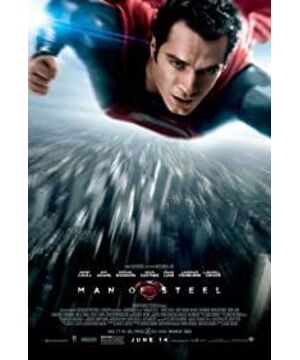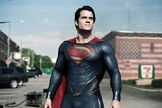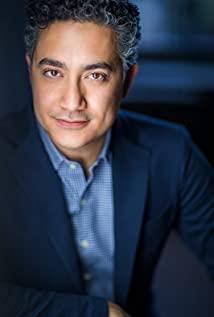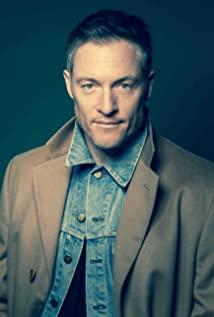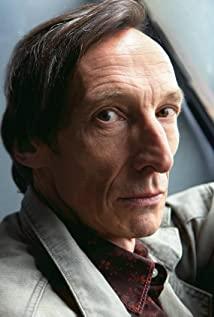Then the Americans’ attitude towards superheroes is really complicated. Are superheroes an exception to the law and the public? Think of Richard Downer’s 1978 old version of Superman. Superman’s adoptive father on Earth is not particularly disgusted with Superman’s use of his superpower, but reminds Superman that this superpower must be used for public welfare and cannot be sought. Your own self-interest, such as using super power to pick up girls, is absolutely impossible, and you can't bully others by bullying. After saying this, the old man died of a heart attack.
In Zach's new version of Superman, the adoptive father prohibits Superman from using his superpowers, even if they are used to do good deeds. "People can't accept your existence. You will change other people's minds." So much so that Superman watched his adoptive father be blown away by a tornado and didn't save him. "Because I believe in his ideas." But
let's not forget that in Sam Remy's "Spider-Man" in 2002, the superhero's perception of himself and the teachings of his uncle who is like his adoptive father. , Or "the greater the ability, the greater the responsibility." Since you have super power, then you should not just sit back and watch the existence of evil. Even if the police and the news media do not understand you, you must actively stop and eliminate evil forces.
This concept of "the greater the ability, the greater the responsibility" is reflected and dispelled in Nolan's "The Dark Knight." Is Batman qualified to replace the law to regulate this society? The Chicken Thief’s Nolan uses a trilogy that seems to give an ambiguous answer. You have to pay the price, you have to endure the puzzle, and finally you can completely disappear after the crisis is resolved-just like in the past westerns, the cowboys resolved After solving the legal problems in the town, he left the town immediately. For Batman, it is enough for the city to erect a sculpture for him, and the hero had better die quickly.
Zach’s "Watchmen" is relatively more radical. He will think that the meaning of superheroes to the world is pure nonsense. Sometimes in order to gain recognition, superheroes will deliberately create a super enemy to deceive the ignorant common people (such as terrorists). ), and then everyone happily called for the return of the superhero.
I think a particularly interesting trend in Hollywood's heroic creation is heroic exceptionalism. For example, the rule of law is good, democracy is good, but it is an exception to heroes, whether it is a hero in the west, a lone detective in a city, a policeman in iron blood, or Superheroes, they can all go a little bit beyond the limits of justice. The goal is of course for greater justice to be achieved. Of course, in order to make a comparison, the villains are always too extreme to oppose democracy, the rule of law and order (bad cowboys, gangsters, clowns). In any case, it is acceptable for the hero to cross the boundary more gently than them.
The Snowden incident happened some time ago. I see that the attitude of many netizens who like the United States reflects this ambiguity in Hollywood. I remember the example given by one person particularly impressed me. He said that one person took a stick from your house to kill you, and another person took a stick from your house to protect you. Can these two things be the same? You have to say the same, you are a stubborn brain.
I think this is more or less a product of Hollywood logic. Of course, Hollywood will be more ambiguous and speculative. After all, different directors have different positions. Although high-cost productions like superhero movies don’t have much room for you to play freely, a movie like "Watchmen" is considered top-notch, and you can’t expect it to provide more self-dissolution and self-reflection. Westerns can have more changes in the later stage because the production cost of westerns is really not big.
But I still want to understand how Superman got out of his adoptive father’s worries about him, that is, why am I eligible to use my super power? Does the world need my super power? Brian Singer's 2006 "Superman Returns" intended to explore this topic, but unfortunately it was also lackluster. Zach’s new Superman is also unstoppable, which makes the narrative actually quite unreliable-Superman can save strangers in a high-profile manner. At this time, he seems to have thrown the teachings of his adoptive father out of the sky, but he is in danger of facing his adoptive father. When the situation happened, he relentlessly listened to the advice of his adoptive father, and sat and watched his adoptive father die. I can only understand that Superman has an opinion on his adoptive father.
Finally, I want to talk about Hollywood's attitude toward this relationship between immigrants and original natives. Regarding Superman's final destruction of his own sovereign country's opportunity to rebuild the country to protect humanity, many people will think of "Transformers 3" in 2011. In fact, this attitude has not been reflected in "Avatar" in 2009? Hollywood always adopts a modified attitude in telling its own history. It is not so much a historical presentation as a mythical presentation. You can tell by watching Westerns. I even want to say that General Zod and Colonel Miles are somewhat alike in appearance.
As a superman who exiled from the hierarchical Krypton to the earth with the idea of free will, he of course lived in harmony with the original inhabitants of the earth instead of invading the earth with the invaders, even if the invaders came from his home planet.
Finally vomit, after Superman finished killing people, his emotions recovered too quickly, right? The director, didn't you say you want him to grow up? What I dislike about this movie is that the director throws out a lot of things that want to dig deeper into the character of Superman, but in the end it is very scribbled, it is better to present a pure Superman directly.
View more about Man of Steel reviews


